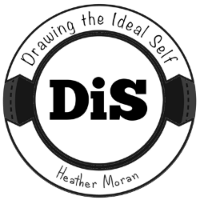Bookshop
Soapbox statement!
I am trying to make my books accessible to all by writing them in 'normal' English and selling them at very low prices. This is so that PCP becomes more accessible to people. The pricing in online stores varies slightly according to exchange rates but they always going to be very cheap. I hope you won't think this is a reflection of the book's content! If you read one and like it, please give the book a rating somewhere.
If you buy direct, I won't have to pay a big share of the book's price to Amazon or the other big stores. Like many people, it bothers me that Amazon dominates but it is a good way for me to have my book widely available so I am using that too. My books are never going to be big sellers and I don't want to give the publication rights away to a publisher. When that happens, publishers charge the author for the book editing, cover design and production, they set the price, AND they can pull it off the shelves and take it out of print whenever they like. So, though I am not going to make money from such a niche market, it makes me very happy to try to help readers. I am particularly keen to make PCP accessible to people on low incomes. If you are care-experienced please contact me for a special discount rate - I don't mind how old you are!
When you are buying direct, please make sure you don't block pop-ups from my site, BookFunnel or from Payhip. The process is that you buy through Payhip, then BookFunnel will deliver the download link to you. I buy a service from BookFunnel to deliver your books because they support the download process and you can get help if you need it - I know e-product purchase could be frustrating for some people. If you are getting something free, you will go direct to BookFunnel from my site for delivery.
Many thanks, Heather
Personal Construct Psychology in Pictures: Key aspects of PCP theory
his book contains a selection of quotations from George Kelly, with illustrations of the concepts and the author's comments or explanations. The aim is to help the reader to understand and recall important PCP terms. It might be useful to people who are starting their PCP education, or would like reminders of the theoretical information. It is a reference book which could be handy if you want to find quotations from Kelly, or an illustration for use in teaching.
Get the ebook free from me via BookFunnel. or from Amazon at the lowest pricing allowed. I am trying to get them to make the ebook free and the print version at print cost only, although it is not proving to be very easy. Both books have colour illustrations.

A Beginner's Guide to Personal Construct Therapy
with Children and Young People
PCP offers the possibility of working therapeutically with a person with any mental health or neurodevelopmental diagnosis, yet there are only a few books about using PCP with children and young people. The aim of this book is to fill a particular gap in that literature. Sometimes people who want to use a PCP approach are unsure about how to apply the theory of PCP in their sessions. If they are not lucky enough to have contact with a PCP supervisor or interest group, they can miss out on hearing about how other professionals might approach their work. There is no similar book available so this is not just for beginners - more experienced practitioners might also find it useful. PCP could not be manualised because it is so individually tailored. However, it is possible to provide an outline and to show how therapy might progress.
This book has details that are not available in other texts. It is written in a conversational style so it should be more readable if English is not your first language. It takes the reader through setting up for therapy, monitoring progress, explaining a PCP approach, the focus of the beginning, middle and end of therapy, and writing about the therapeutic work. All therapists will need a toolkit and some ideas of how and why to use them. It includes explanations for seven ways to explore construing and two new free techniques that will help the therapist to explore a specific role or a difficult experience. These are written in a similar style to Drawing the Ideal Self, making it easy to follow the process in a session. They are also available to download on the techniques page.
Available in ebook format from my Payhip store. When you buy the ebook direct from my Payhip store and get 20% off when you use this code at the checkout: 08ZZEPMP0T
Available from
ebook from
Paperback from

